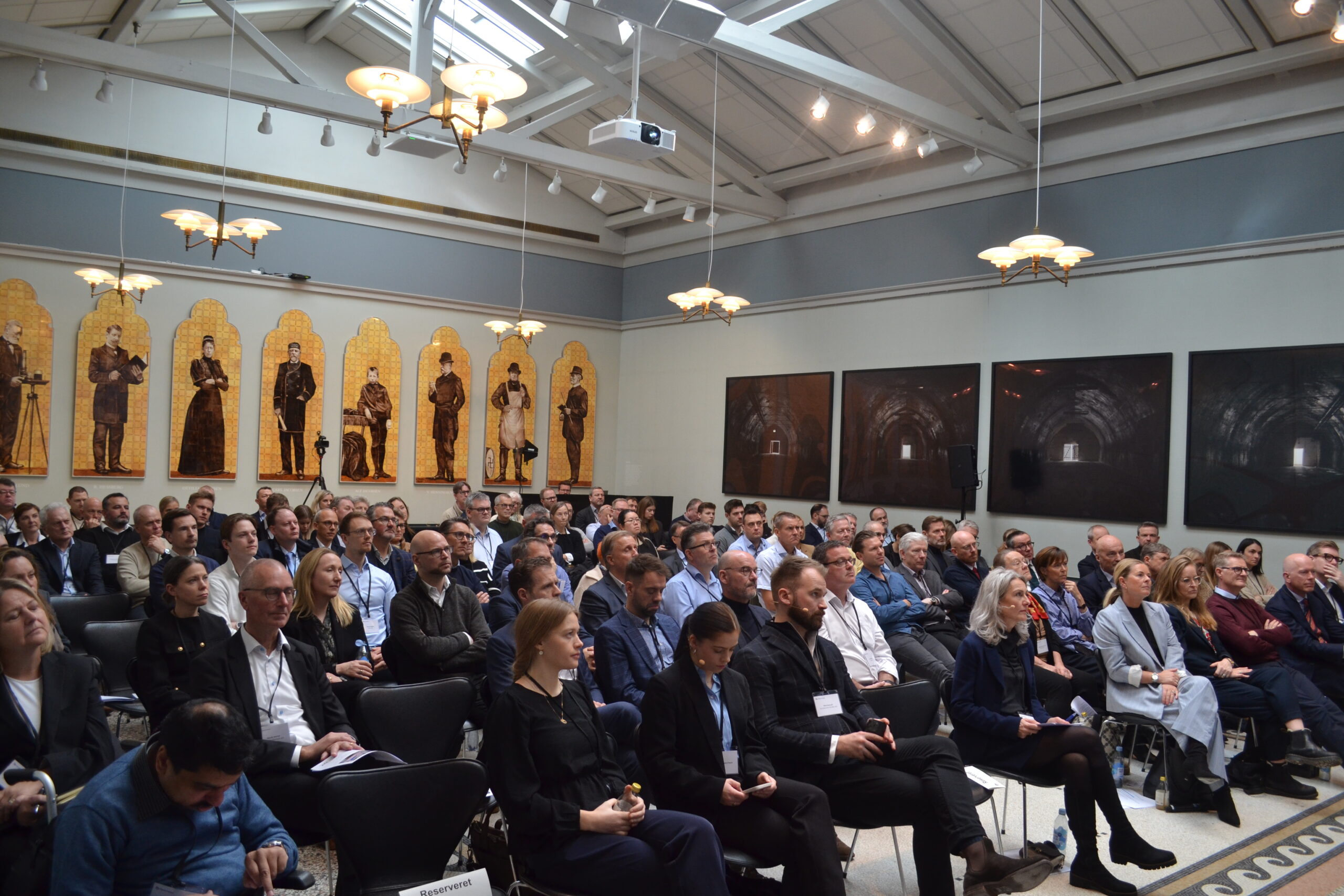As Donald Trump’s first month is ending, Danish businesses of all shapes and sizes are trying to navigate through an atmosphere of uncertainty, deciphering what the recently elected administration’s policies will mean for their operations.
To address some of these upcoming challenges, a large group of Danish business leaders, experts, and members of the press gathered this Monday at the Carlsberg Museum & Business Centre. The event, hosted by The Confederation of Danish Industry (DI), explored how Danish companies can navigate Trump’s aggressive trade policies and continue leveraging opportunities in the U.S. market.
One of the event’s speakers was Peter Bay Kirkegaard, a leading senior advisor at DI. Instead of focusing on anxiety and despair, he urged Danish business leaders to keep a cool head in the coming months.
“An important thing to keep in mind is that there is a lot of noise at this moment surrounding what Trump’s presidency will mean for Danish businesses. Right now, businesses should try to peel away some of the noise and instead look at the underlying messages that the Trump administration is trying to convey,” he says and continues:
“There have been a lot of mentions of tariffs, taxes, and VAT rates, but we have yet to see very much concrete in terms of actual measures. Most likely, we will see something by April, and by then, we’ll have a better picture of what they’re actually planning to do in terms of foreign businesses.”
One big, beautiful bill
By “April,” Kirkegaard is referring to Trump’s so-called “big, beautiful bill”, which is supposedly going to be passed early that month. The bill has been described by Donald Trump as “one big, beautiful bill” that implements his full America First agenda, including policies regarding foreign companies and businesses.
With the U.S. being Denmark’s largest export partner—accounting for about 290 billion Danish kroner in trade in 2023—understanding and adapting to these new realities will be crucial for Danish companies wanting to maintain their foothold in the United States.
“Obviously, there’s a lot of uncertainty at the moment, and that means some companies are hesitant to make investments, both in the United States and in Denmark. They prefer to wait and see exactly what kind of impact this will have on how many goods they can sell to the U.S.,” Kirkegaard says and continues:
“Generally, uncertainty is almost always a toxic cocktail for businesses. When you, as a company, don’t know how much you have to work with, you start holding back on investments, and that’s going to end up limiting overall growth.”
Everyone is affected differently
Just as businesses are structured differently, they are also affected differently by American trade policies. One of the many business leaders present at the conference was Annette Saust Estøs, co-founder of the business-to-business company FLEYE, which designs and produces stylish frames for eyeglasses.
“We’re curious to see how it’s going to affect us. It all comes down to how large a customs tax may be put on eyeglasses along with other products. But we believe this will have consequences for a lot of Danish companies, especially considering how much we, as a country, export to the U.S.,” she says and adds:
“We don’t do a lot of business in the United States, but we do have a few reliable, big customers there. However, we produce most of our products in China, and we may have to consider bringing the parts here so they’ll be assembled and made in Denmark.”
Another company manager present at the Museum & Business Centre was Thomas Givskov. His company, Aquaporin, deals in water filters, both industrial and for daily use. The company has clients around the globe, including in the United States.
“A lot of the membrane for our filters is made in Texas, and we usually import from the U.S., so we’re not going to be directly impacted by that. But the products we want to send back to the States could very well be affected. Ultimately, we’re going to have to wait and see what happens after the dust has settled.”
Dependent on foreign partnerships
In the midst of the uncertainty surrounding President Trump’s trade policies, companies are preparing for the coming times in different ways, however Peter Bay Kirkegaard urges Danish businesses to remain calm and focus on the bigger picture. While concerns about tariffs are valid, the reality is that American companies still rely on foreign partnerships, including those with Danish firms. The real question is not whether these relationships will end but rather how they might evolve in response to potential cost-cutting measures.
“Businesses may find some solace in knowing that this uncertainty applies to every foreign business exporting to or operating within the borders of the United States. This is why companies shouldn’t panic and should try to look past all the noise.”
He dismisses the notion that American companies will stop working with Danish operations based on U.S. administration policies but does not deny that they may still look for alternative ways to cut costs.
“American companies are dependent on foreign partnerships and foreign businesses, so I doubt they’ll stop working with Danish businesses from one day to the next. But of course, if a large tariff is applied to products from other countries, then it is possible that some American businesses will start looking into how they can get cheaper access to the same products—perhaps by manufacturing them in their own country,” he adds.












